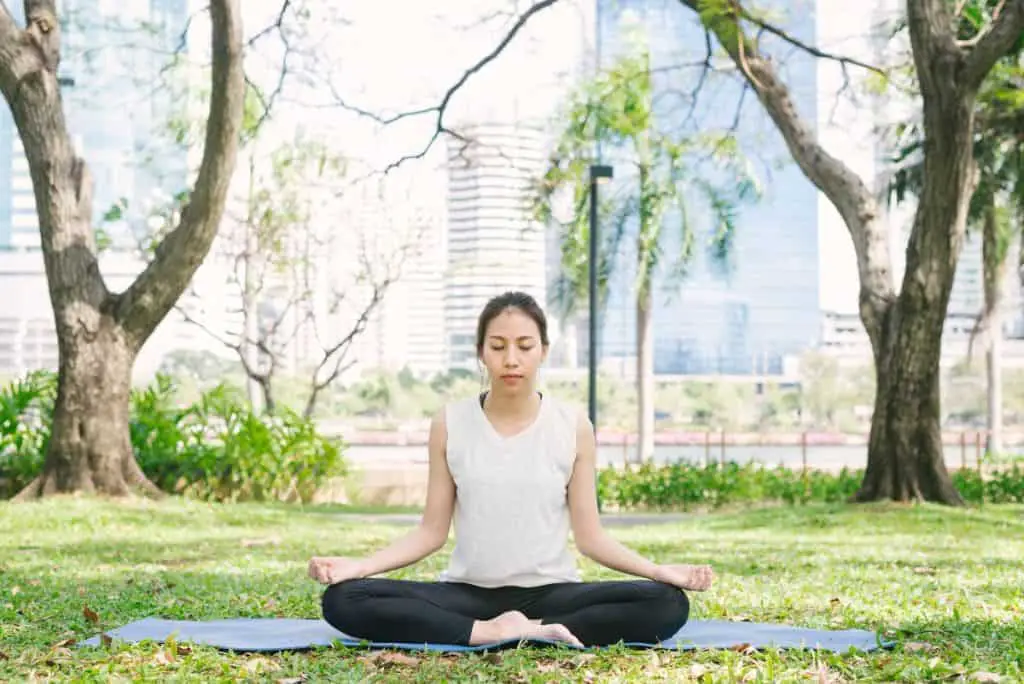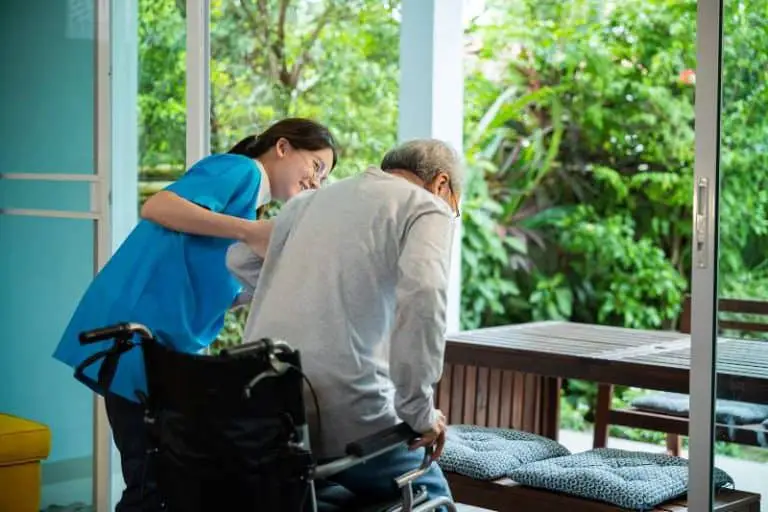The Thai Approach To Mental Wellness And Mental Well-being
Thailand balances profound complexities regarding mental health. While rates of depression, anxiety, and suicide have risen in concerning manners recently, the cultural stigma surrounding emotional struggles persists. However, the Land of Smiles simultaneously nurtures holistic pathways to inner tranquility through long-standing spiritual traditions and close community connections that form protective shields against modern ills.
Key Takeaways
- Mental health issues like depression and anxiety are on the rise among Thai people due to high stress and societal pressures.
- Traditional healing remedies, Buddhist principles, and strong community/family ties form the foundation of the Thai approach to mental wellness.
- Improving access to affordable mental healthcare, reducing stigma, and empowering marginalized groups are crucial for Thailand.
The Rising Mental Health Crisis in Thailand
Thailand has seen concerning spikes in common mental illnesses like depression, anxiety, and stress in recent years. According to Thailand’s Department of Mental Health (DMH), around 6 million citizens now struggle with mental health conditions, partly fueled by the COVID-19 pandemic.
Additional drivers of this crisis include:
- High expectations: Thai people often experience immense pressure to succeed educationally and financially from a young age to support households spanning multiple generations.
- Fast-paced urban lifestyles: Long work hours, hyper-connectivity, and constant comparison through social media exacerbate distress.
- Financial woes: Instability and lack of social/economic mobility among lower-income Thais provoke uncertainty and desperation.
Together, these dynamics subject many Thai individuals to chronic stressors that erode mental well-being over time and require compassionate solutions.
Sociocultural Drivers of Distress
Thai cultural attitudes and social norms further shape experiences related to mental health. Seeking psychiatric treatment or counseling services often gets perceived as a display of weakness rather than courage. Public education efforts are still needed to encourage open discussions about mental health without fear of judgment.
Mental health struggles also get compounded for those who identify as LGBTQ+ or outside of traditional binary gender norms, as they face stigma. Outdated masculine stereotypes prevent men from expressing vulnerabilities and accessing support.
Thailand’s communal culture prizes group harmony over individuals voicing their challenges. However, suppressing difficult emotions can heighten isolation and mental health issues over time. At home, mental health rarely gets acknowledged as an acceptable conversation topic.
Resources for detecting warning signs and coaching healthy coping skills remain scarce in schools. While cultural change emerges slowly, proactive policymaking and grassroots advocacy can mitigate these societal risk factors.
Stigma Surrounds Mental Illness
- Seeking psychiatric treatment or counseling services often gets perceived as displays of weakness rather than courage.
- Public education efforts are still needed to encourage open discussions about mental health without fear of judgment.
Pressure to Conform to Rigid Gender Expectations
- Struggles get compounded for those who identify as LGBTQ+ or outside of binary norms.
- Outdated masculine stereotypes also prevent men from expressing vulnerabilities and accessing support.
Collectivist Values Override Personal Needs
- Thailand’s communal culture prizes group harmony over individuals voicing their challenges.
- However, suppressing difficult emotions can heighten anxiety, depression, and isolation over time.
Communication/Support Systems Lack Openness
- At home, mental health rarely gets acknowledged as an acceptable dinnertime conversation topic.
- Resources for detecting warning signs and coaching healthy coping skills remain scarce in schools.
While cultural change emerges slowly, proactive policymaking and grassroots advocacy can mitigate these societal risk factors through targeted education and anti-stigma campaigns.
Integrative Approaches for Healing and Growth
Alongside professional psychiatric medications and talk therapy techniques, holistic modalities centered on community engagement, spirituality, and creativity also support the treatment of Thailand’s mounting mental health burdens:
Buddhist Mindfulness and Perspectives on Suffering Provide Solace
- Concepts like impermanence and non-attachment help diffuse distress.
- Meditation and breathwork ground individuals in the present moment.
Traditional Medicine Offers Customized Care
- Trusted remedies feature health-promoting herbs, therapeutic massages, or rituals honoring deceased ancestors.
- Respect for these long-standing traditions maintains cultural continuity.
Family and Friends Supply Connection
- Cohorts who undergo shared experiences create safe spaces for vulnerability.
- Intergenerational bonds allow wisdom transmission across age groups.
Creative Activities and Nature Boost Holistic Health
- Therapies incorporating art, music, or dance encourage healthy processing of emotions.
- Time spent outdoors relieves stress through green space exposure.
While some clinical evidence questions certain claims, these customary techniques undoubtedly provide many Thai people comfort, purpose, and perspective during turbulent times.
Expanding Access to Mental Healthcare (500 words)
Barriers inhibiting treatment access remain complex, highlighting pathways for growth:
Affordable, Quality Services Stay Limited
- With only 2.8 psychiatrists available per 100,000 people, Thailand’s mental health infrastructure cannot address rising demand.
- Many full-time employees also lack comprehensive medical insurance covering therapy costs beyond preliminary consultations.
Language, Location, Finances Block Access
- English speakers residing in rural areas struggle to get matched with compatible bilingual counselors.
- Out-of-pocket fees for in-depth psychiatric evaluations or residential facility stays restrict lower-income households.
Digital Tools Bridge Gaps
- Telehealth and online support communities supply convenient options with 24/7 availability.
- Popular global platforms like TikTok and Instagram drive candid mental health advocacy among younger demographics.
Multi-Sector Coordination Holds Promise
- The Thai government actively collaborates with the private sector and non-profit organizations specialized in psychology/social work to maximize resource distribution across communities.
- By investing in localized mentorship programs to expand the pipeline of aspiring mental health professionals, brain drain decreases long-term while treatment accessibility heightens simultaneously.

Path Forward: Reducing Stigma, Prioritizing Wellness
Although Thailand has progressed immensely regarding awareness and openness surrounding mental health in recent decades, the pursuit of holistic wellness across all echelons of society persists as an ongoing endeavor requiring continuous nurturing through the following outlets:
National Campaigns Tackle Discrimination
- Multi-channel anti-stigma drives led by celebrities and influencers embolden everyday citizens to share stories without fear of backlash.
- Psychoeducation through interactive virtual reality workshops or TikTok skits dismantle outdated assumptions about psychiatric conditions.
Workplaces Support Work-Life Integration
- Flexible remote policies, mental health days, and stress management seminars prevent employee burnout.
- Leaders publicly championing self-care communicates that productivity metrics and profitability never eclipse humanity.
Grassroots Groups Gain Traction
- By canvassing neighborhoods, students and volunteers inform households about warning signs plus local treatment options and financial assistance programs available.
- Previously silenced voices get amplified through art exhibitions and spoken word events.
Equipping Youth and Marginalized With Coping Skills
- Incorporating emotional intelligence materials into school curriculums from early ages better outfits students to handle future adversity.
- Tailored outreach to underserved communities ensures inclusion regardless of socioeconomic standing.
Through combined efforts, the goal remains to position mental wellness on equal footing with physical health across all life domains among Thai people.
Emerging Areas of Concern
While progress continues along multiple dimensions, three distressing patterns demand urgent action by stakeholders seeking to bolster Thailand’s overall state of mental health:
Substance Abuse Among Youth
- According to recent data Thai adolescents turn to alcohol as an unhealthy coping mechanism, with some additionally reporting usage of illicit substances like marijuana.
- Contributing drivers range from peer pressure to escape family problems or academic disappointments.
- Investing in early intervention programs that teach children healthy stress relief plus warning sign detection skills could reverse this dangerous trend.
Surge in Teenage Suicide Rates
- Thailand’s annual youth suicide rate now approaches 15 per 100,000 people, notably above the global average.
- A complex interplay of factors including bullying, social isolation, domestic violence exposure, academic pressures, financial instability, absence of familial emotional support, and barriers to accessing professional help converge to produce feelings of hopelessness.
- Implementing free anonymous counseling hotlines, destigmatizing treatment-seeking behaviors through awareness campaigns, regulating traditional and social media portrayals of suicide, and equipping teachers/community leaders with crisis response protocols could make headway in combatting this preventable tragedy.
Social Media and Technology Overuse Fuels Harm
Studies reveal correlations between excessive time online and depression/anxiety prevalence among Thai adolescents.
The desire to portray perfect versions of oneself for social validation combined with round-the-clock internet harassment leave many feeling inadequate and chronically apprehensive.
Schools could teach students to become conscious consumers of technology and model appropriate usage habits. Parents may restrict device access and promote outdoor recreation or household conversations. Apps could cap daily usage while governments incentivize tech companies to enhance user safety provisions by law.
Joint action addressing these emerging areas of concern can positively influence Thailand’s mental health landscape for generations to come.
Global Perspectives on Thai Mental Health
In many aspects, Thailand’s mental health challenges mirror patterns witnessed worldwide, yet notable cross-national differences and policy successes still emerge:
Lower Diagnosis Rates But Rising Youth Impacts
- Thailand’s 4.15% depression rate and 2.58% anxiety rate remain below the global averages of 4.7% and 3.8% respectively among the overall population as per World Health Organization data.
- However, among those under 20 years old, Thailand’s prevalence trajectory has increased worryingly faster than regional neighbors over the past decade.
Collectivist Values Can Both Alleviate and Exacerbate Distress
- Familial interdependence and community belonging satisfy inherent human desires to feel needed and valued. In times of hardship, owning reliable support networks protects against isolation.
- Yet the same cultural forces breed stigma against seeking psychiatric treatment, silence open conversations about struggles to uphold group harmony and hinder emotional autonomy.
Mental Health Policies Gaining Maturity
- From Thailand’s first national mental health plan formulated in 1995 to ongoing partnerships expanding free telehealth services into rural regions today, the country’s mental health infrastructure has strengthened remarkably despite residual gaps.
- Grassroots advocacy groups also positively reshape cultural attitudes by bringing taboo subjects into mainstream awareness.
While much work remains ahead, Thailand continues trending favorably towards holistic wellness prioritization.
FAQs
What is Thailand’s current state of mental health?
Thailand faces escalating mental health burdens, especially among youth facing school pressures, financial uncertainty, or family troubles without adequate coping skills or accessible support resources. However, local advocacy groups are actively working to strengthen clinical service availability, dismantle cultural stigmas, and promote emotional wellness literacy.
How does Thai culture view emotional struggles?
Mental health issues historically got dismissed rather than addressed openly in Thailand. Seeking psychiatric treatment commonly gets perceived as emotional frailty. However, younger generations demonstrate greater openness and help-seeking behaviors amid destigmatization efforts.
What traditional Thai healing approaches are used?
Alongside Western talk therapy and medications, Thai holistic interventions include Buddhist mindfulness principles, herbal remedies, spiritual rituals, therapeutic massage, creative arts engagement, and community counseling circles.
What policies aim to expand citizens’ access to mental healthcare?
Key government policies offer some subsidized mental health services, collaborate with nonprofit groups on awareness campaigns, train new specialized practitioners, and incorporate technology solutions like free telehealth consultations and mobile health education apps.
How can Thailand further enhance its citizens’ well-being?
Goals ahead involve sustaining multi-sector coordination to keep advancing resource accessibility, promoting workplace policies supporting work-life balance, normalizing open conversations about mental health through national media campaigns, and prioritizing emotional resiliency skill-building within educational curriculums at all levels.
Conclusion
I know it’s not easy opening up about mental health struggles. There can be confusion, shame, and fear of judgment from others. But the truth is, you don’t have to handle this alone. Some people care and want to help – I’m one of them! At BetterLivingAsia, we meet you where you’re at on your wellness journey with an open heart, mind, and virtual shoulder to lean on.
Don’t worry, I won’t tell you to “just get over it” or “be positive.” Your feelings make total sense. But together, I believe we can find glimmers of hope, slowly lift the veil of stigma, and discover healthier ways of moving forward, the Thai way. I’m here for you, one baby step at a time. Just reach out whenever you feel ready. Brighter days wait ahead.






